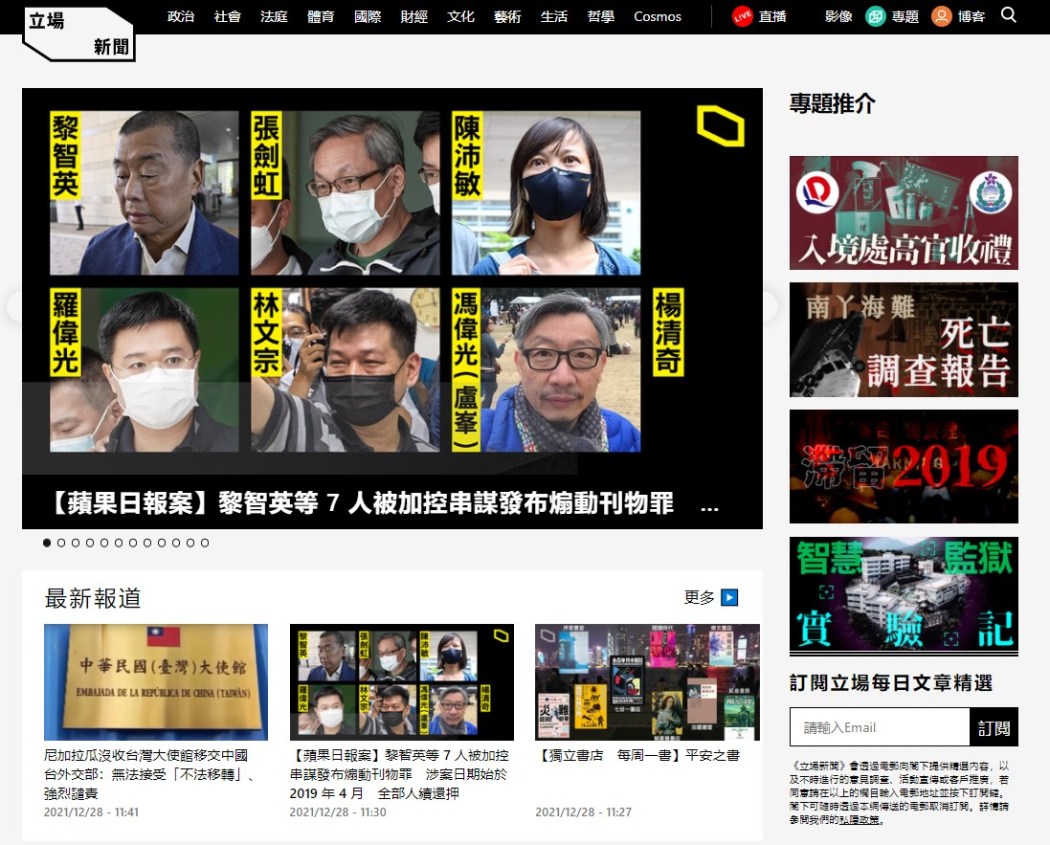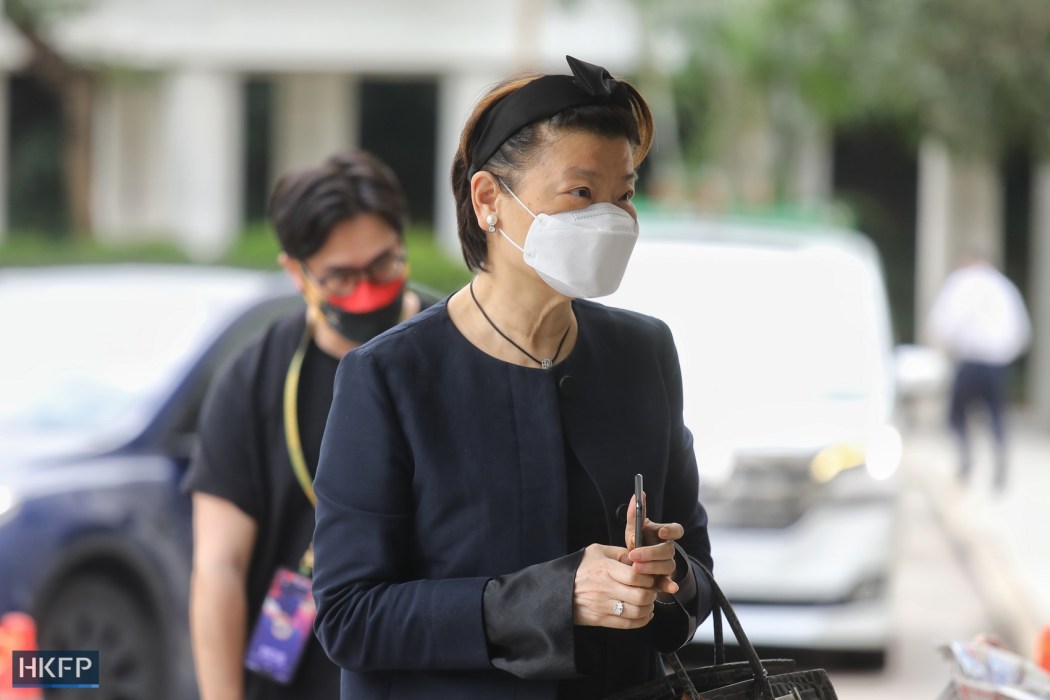A former chief editor of shuttered independent Hong Kong outlet Stand News charged under the colonial-era sedition law told a court that he believed his colleagues had done “nothing wrong,” becoming emotional at times as he spoke of his wife and successor.
Chung Pui-kuen – who stands accused of conspiring to publish “seditious” materials along with ex-acting editor-in-chief Patrick Lam and Stand News’ parent company Best Pencil Ltd – continued to testify at District Court on Wednesday, as the sedition trial entered its 18th day.

Chung, 53, was chief editor of Stand News from 2015 until October 2021, stepping down from the position four months after the arrest of his wife, Chan Pui-man, who was the associate publisher of Apple Daily. The popular pro-democracy tabloid Apple Daily ceased operations after management staff and writers were arrested and charged with colluding with foreign forces in June that year.
After seeing what had happened to Apple Daily, Chung said he evaluated the risks to Stand News and removed all all articles by its regular contributors and columnists and other opinion articles published before May.

He also introduced new arrangements to prevent staff from not getting paid if the outlet was shut “abnormally” – including settling severance payments for all eligible employees in advance.
“Why not just close down the outlet?” defence counsel Audrey Eu asked Chung.
“To put it simply, I didn’t have the heart to do so… My colleagues did nothing wrong from the start, and I believe we did nothing that deserved to be subject to legal liability,” Chung said slowly.
Chung added that there was never any hidden agenda behind Stand News, and he believed free speech was beneficial to civil society, and to the country.
Resignation
When asked to describe what happened to Apple Daily, Chung choked up slightly as he spoke about his wife’s arrest. Seeing his reaction, Judge Kwok Wai-kin called for a morning break.

Eu later asked Chung what motivated him to resign in October 2021. Chung said that he had been unable to fulfil his role as he was visiting his wife in detention every day.
“My family didn’t want me to continue. I planned to resign, but I didn’t want to shut down Stand News… So, the most difficult part was finding someone to succeed my post, but… ah… sorry,” Chung said as he teared up again, before asking permission to take a sip of water.
“I had a good colleague, Patrick Lam, he was willing to take the risk,” Chung continued. “I feel very sorry, because I didn’t want to put my colleague in danger, but I also didn’t want my family to worry. I had to make a choice,” he said.
“In the end, I didn’t manage to protect all my colleagues.”
The red line
In June 2020, Beijing inserted national security legislation directly into Hong Kong’s mini-constitution – bypassing the local legislature – following a year of pro-democracy protests and unrest. It criminalised subversion, secession, collusion with foreign forces and terrorist acts, which were broadly defined to include disruption to transport and other infrastructure. The move gave police sweeping new powers, alarming democrats, civil society groups and trade partners, as such laws have been used broadly to silence and punish dissidents in China. However, the authorities say it has restored stability and peace to the city.

Chung said the outlet refused to publish any commentary that called for Hong Kong independence after the implementation of the national security law. However, he maintained that journalists should not censor slogans like “Liberate Hong Kong, revolution of our times” if it appeared in a protest scene, or else they would distort the truth. The phrase has been criminalised under the security legislation and deemed capable of inciting secession.
“You know, the ‘red line’ is blurry. Once you start thinking about red lines, you start thinking: ‘is this slogan okay? Is that wording permissible?’… It results in unnecessary self-censorship, which makes reports untrue or incomplete, and journalists don’t want to see that,” he said.
Balanced reporting
Suggesting an example of balanced reporting, Chung said Stand News carried opinions supporting and opposing former chairman of the Hong Kong Bar Association Paul Harris, including quotes from former chief executive Leung Chun-ying.
Eu also mentioned news articles featuring pro-establishment figures or influencers, such as Ronny Tong, when discussing the issue of balance.

Earlier in the trial, the prosecution pointed to comments left in Stand News’ comments section to illustrate the sentiments that 17 allegedly seditious articles stirred up in readers. On Thursday, Eu presented the comments section of a government’s social media account – Tamar Talk – to the court.
“We’ll look at an official page and see if it’s that easy to delete unfavourable comments,” Eu said, then pointed to the comments that insulted Hong Kong judges.
Chung will continue to testify on Friday.

Sedition is not covered by the Beijing-imposed national security law. Those convicted under the sedition law – last amended in the 1970s when Hong Kong was still a British colony – face a maximum penalty of two years in prison.
Non-profit online news outlet Stand News ceased operations in December 2021 after its newsroom was raided by more than 200 national security police officers. Seven people connected to the publication were arrested on suspicion of conspiring to publish seditious publications. Only Chung and Lam were charged.
They were both granted bail late last year after being held in custody for nearly a year.
Support HKFP | Policies & Ethics | Error/typo? | Contact Us | Newsletter | Transparency & Annual Report | Apps
Help safeguard press freedom & keep HKFP free for all readers by supporting our team
























